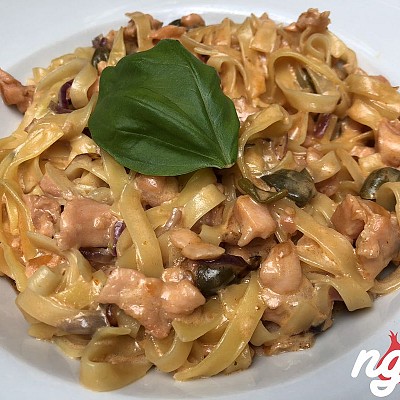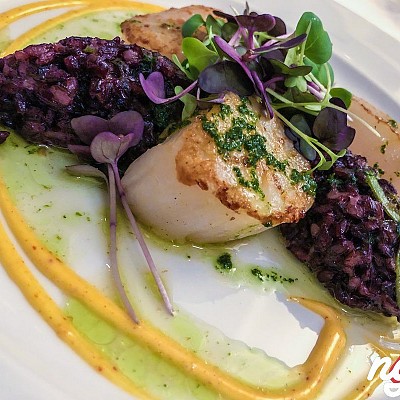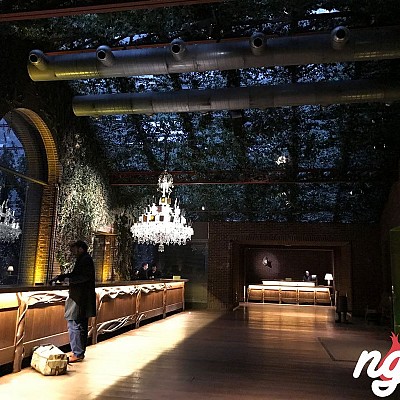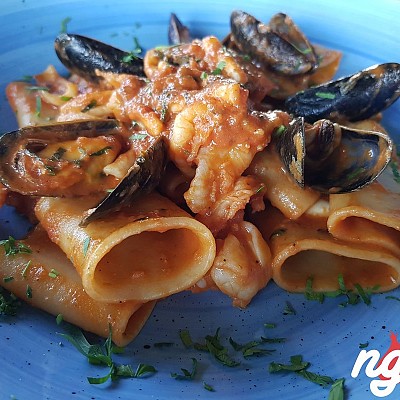In today's digital landscape, a strong online presence is paramount for restaurants to thrive. Recently, restaurant owners have recognized the impact of link building on search engine rankings. It is crucial to employ advanced strategies that effectively elevate your restaurant's visibility. This comprehensive guide delves into actionable techniques to amplify your link building efforts for restaurant websites, ensuring your website stands out in a crowded online marketplace.
Understanding the Importance of Link Building for Restaurants
Link building is the process of acquiring hyperlinks from other websites to your own. These backlinks act as votes of confidence, signaling to search engines like Google that your content is valuable and relevant. For restaurants, a robust backlink profile is not just a nice-to-have; it is a necessity for effective SEO.
According to recent statistics, 78% of local mobile searches result in offline purchases. This underscores the significance of optimizing your restaurant's online presence for local search. Consistently building high-quality backlinks can improve your site's authority, enhance its visibility in search engine results pages (SERPs), and ultimately increase foot traffic to your establishment.
Identifying Your Link Building Goals
Before embarking on any link building campaign for your restaurant, it is essential to establish clear, measurable goals that align with your restaurant's overall digital marketing strategy. Tailor these goals to your specific needs and challenges to ensure your efforts are focused and effective.
For example, if your restaurant is relatively new or operating in a highly competitive market, your primary goal might be to increase brand awareness and visibility. In this case, your link building efforts should focus on acquiring backlinks from high-authority, industry-relevant websites to boost your online credibility and reach a broader audience.
On the other hand, if your restaurant is well-established but struggling to rank for specific local keywords, your goal might be to improve local SEO performance. In this scenario, prioritize earning backlinks from locally relevant websites, directories, and community resources.
Crafting a Content Strategy That Attracts High-Quality Links
Content lies at the heart of any successful link building campaign. Create compelling, shareable content that resonates with your target audience to increase the chances of other websites linking back to your site organically. Collaborate with a reputable link building company to significantly enhance your content strategy. Their expertise in creating high-quality, link-worthy content can be tailored to your restaurant's unique offerings and target audience.
When creating content, prioritize quality over quantity. Focus on producing well-researched, engaging, and visually appealing pieces that genuinely provide value to your target audience.
Utilizing Local Partnerships and Community Engagement
As a local business, your restaurant has a unique opportunity to forge strong partnerships and engage with the surrounding community. These connections can enhance your brand's visibility and open doors to valuable link acquisition opportunities.
Here are some effective strategies to leverage local partnerships and community engagement for link building:
Collaborate with Local Businesses: Partner with complementary local businesses, such as bakeries, breweries, or food suppliers, to co-create content or host joint events. These collaborations can result in cross-promotion and reciprocal linking opportunities.
Sponsor Local Events: Sponsor community events, festivals, or charity fundraisers. In exchange for your sponsorship, you may secure backlinks from the event's website, promotional materials, and any media coverage.
Participate in Community Initiatives: Get involved in local initiatives, such as supporting local farmers, promoting sustainability, or contributing to food drives. These efforts can earn you backlinks from community organizations, non-profits, and local media outlets.
Partner with Local Bloggers and Influencers: Collaborate with local bloggers, food influencers, or social media personalities by inviting them for a tasting experience or offering exclusive behind-the-scenes access. In return, they may feature your restaurant on their platforms, providing valuable backlinks.
Fostering strong relationships within your local community not only boosts your link building efforts but also enhances your restaurant's reputation and customer loyalty.
Mastering the Art of Guest Blogging
Guest blogging is a highly effective link building strategy that allows you to tap into established audiences and earn high-quality backlinks from authoritative websites. Contribute valuable content to relevant blogs and publications to showcase your expertise, increase brand awareness, and drive traffic back to your restaurant's website.
Here are some best practices for mastering the art of guest blogging:
- Identify Relevant Blogs and Publications: Research food blogs, local business websites, culinary forums, and industry publications that align with your restaurant's niche and target audience.
- Craft Compelling Pitches: Develop a list of unique and engaging topics that provide value to the host blog's readers. Craft a persuasive pitch that highlights your expertise and the benefits of featuring your content.
- Adhere to Editorial Guidelines: Once your pitch is accepted, carefully review the host blog's guidelines and ensure your guest post aligns with their style, formatting, and submission requirements.
- Promote Your Guest Posts: Leverage your restaurant's social media channels and email lists to promote your guest posts, driving traffic and potentially earning additional backlinks from readers who share or link to your content.
Remember, guest blogging is a two-way street. In addition to earning backlinks, you should reciprocate by featuring guest posts from other industry experts on your restaurant's blog. This mutual cross-promotion can foster valuable relationships and amplify your link building efforts.
Harnessing the Power of Reviews and Testimonials
In the restaurant industry, positive reviews and testimonials from satisfied customers can be invaluable assets for link building. They not only enhance your online reputation but also serve as a natural source of backlinks from reputable review platforms and websites.
Here are some effective strategies for harnessing the power of reviews and testimonials:
- Encourage Customer Reviews: Actively encourage customers to leave reviews on popular platforms such as Google, Yelp, TripAdvisor, and OpenTable. Include links to your review profiles on your website, email signatures, and social media channels to make it easy for customers to share their feedback.
- Respond to Reviews: Promptly respond to both positive and negative reviews, thanking customers for their feedback and addressing any concerns professionally. This demonstrates your commitment to excellent customer service and can encourage further engagement and potentially more backlinks.
- Leverage Testimonials: Collect testimonials from satisfied customers and feature them prominently on your website. These testimonials can serve as a source of backlinks if customers include their website URLs or social media profiles.
- Collaborate with Influencers and Bloggers: Partner with food bloggers, influencers, or local media personalities by inviting them to dine at your restaurant. Their positive reviews and mentions can earn you valuable backlinks from their platforms.
By actively managing your online reputation and encouraging customer feedback, you can not only improve your link acquisition efforts but also enhance your overall online presence and attract more patrons to your establishment.
Leveraging Social Media to Boost Link Building
Social media platforms have evolved into powerful marketing channels for restaurants, providing numerous opportunities to amplify your link building efforts and drive more traffic to your website. By leveraging social media for restaurants, you can increase your online visibility, engage with your audience, and encourage others to link back to your content.
Here are some proven strategies to leverage social media for boosting link building:
Share Engaging Content:
Consistently share visually appealing, informative, and entertaining content on your social media channels. This content could include mouthwatering food photos, behind-the-scenes videos, recipe tutorials, or glimpses into your restaurant's unique atmosphere. Compelling content increases the likelihood of others sharing and linking back to your posts.
Host Social Media Contests and Giveaways:
Run engaging contests or giveaways that incentivize participants to share, like, or comment on your posts. Encourage them to tag friends or include relevant hashtags, which can amplify your reach and attract backlinks from participants' profiles or websites.
Collaborate with Influencers:
Identify and collaborate with local food influencers, bloggers, or personalities with a strong social media following. By partnering with them for sponsored posts, reviews, or takeovers, you can tap into their audiences and potentially earn backlinks from their websites or social media profiles.
Engage with Your Community:
Actively engage with your social media followers by responding to comments, sharing user-generated content, and fostering a sense of community around your restaurant. This level of interaction can encourage others to link back to your profiles or website as a trusted source of information and engagement.
Leverage Social Signals:
Social signals, such as likes, shares, and comments, can indirectly influence your search engine rankings and online visibility. By consistently creating shareable content and encouraging social engagement, you can increase these signals, which may lead to more backlinks from websites looking to link to popular and relevant content.
Implement a Facebook Marketing Strategy:
Develop a comprehensive Facebook marketing strategy tailored specifically for your restaurant. Share mouth-watering photos, promote special offers, and engage with your local community on this widely-used social media platform. A strong Facebook presence can help you attract backlinks from local directories, blogs, and other relevant websites.
Real-world examples, such as the viral success of Denny's quirky social media campaigns or the global reach of McDonald's hashtag initiatives, showcase the potential of social media in driving link acquisition and online visibility for restaurants.
Monitoring, Analyzing, and Refining Your Link Building Strategy
Continuous monitoring, analysis, and refinement are crucial components of any successful link building strategy. Regularly evaluate the performance of your efforts to identify areas for improvement, adapt to changing trends, and ensure your tactics remain effective in driving sustainable growth.
Here are some key steps to monitor, analyze, and refine your link building strategy:
- Track and Measure Key Performance Indicators (KPIs): Establish relevant KPIs to measure the success of your link building campaigns. These may include the number of new backlinks acquired, the quality of linking domains (based on metrics like Domain Authority or Page Authority), organic traffic growth, and improvements in search engine rankings for targeted keywords.
- Utilize Link Building Tools: Leverage specialized link building tools, such as Ahrefs, Moz, or SEMrush, to monitor your backlink profile, analyze competitor strategies, and identify new link acquisition opportunities. These tools provide valuable insights into your link building efforts and help you make data-driven decisions.
- Analyze Link Quality and Relevance: Not all backlinks are created equal. Regularly audit your backlink profile to assess the quality and relevance of the links you've acquired. High-quality, industry-relevant links from authoritative domains will carry more weight than low-quality or irrelevant links, which can potentially harm your SEO efforts.
- Identify and Disavow Toxic Links: If you discover toxic or spammy links pointing to your website, take prompt action to disavow them using Google's Disavow Tool. These links can negatively impact your search engine rankings and online reputation, so it's essential to remove their influence on your website.
- Refine and Adapt Your Strategies: Based on your analysis, continuously refine and adapt your link building strategies. If certain tactics are yielding suboptimal results, pivot and explore new approaches. Stay up-to-date with the latest industry trends, algorithm updates, and best practices to ensure your efforts remain effective and aligned with search engine guidelines.
By consistently monitoring, analyzing, and refining your link building strategies, you can ensure that your restaurant's online presence remains competitive and continues to attract high-quality backlinks that drive targeted traffic and improve search engine visibility.
Frequently Asked Questions
1. What are the most common challenges in link building for restaurants, and how can they be overcome?
Common challenges include intense competition, limited resources, and earning relevant, authoritative backlinks. Overcome these by creating unique, high-quality content, leveraging local partnerships/community engagement, and actively pursuing guest blogging opportunities on reputable platforms.
2. How do I measure the ROI of my link building efforts for my restaurant website?
Track metrics like organic traffic growth, lead generation/conversion rates, local search rankings, and brand awareness/online reputation. A strong backlink profile can drive qualified traffic, increase conversions/sales, and boost overall online visibility.
3. Are paid links worthwhile, and what are the risks associated with them in the restaurant industry?
Paid links violate search engine guidelines and can lead to penalties, lack sustainability, and damage reputation. Instead, focus on earning high-quality, natural backlinks through ethical practices like exceptional content creation, local partnerships, and community engagement.
Conclusion
In the ever-evolving digital landscape, a comprehensive Digital marketing strategy is vital for restaurants to establish a strong online presence, attract qualified traffic, and ultimately drive customer acquisition. Employing the advanced techniques outlined in this guide can help you effectively navigate the intricate world of link building and stay ahead of the competition.
Remember, link building is an ongoing process that requires continuous adaptation and refinement. Remain vigilant in monitoring your efforts, analyzing the results, and adjusting your strategies to align with the latest industry trends and search engine algorithms.






































